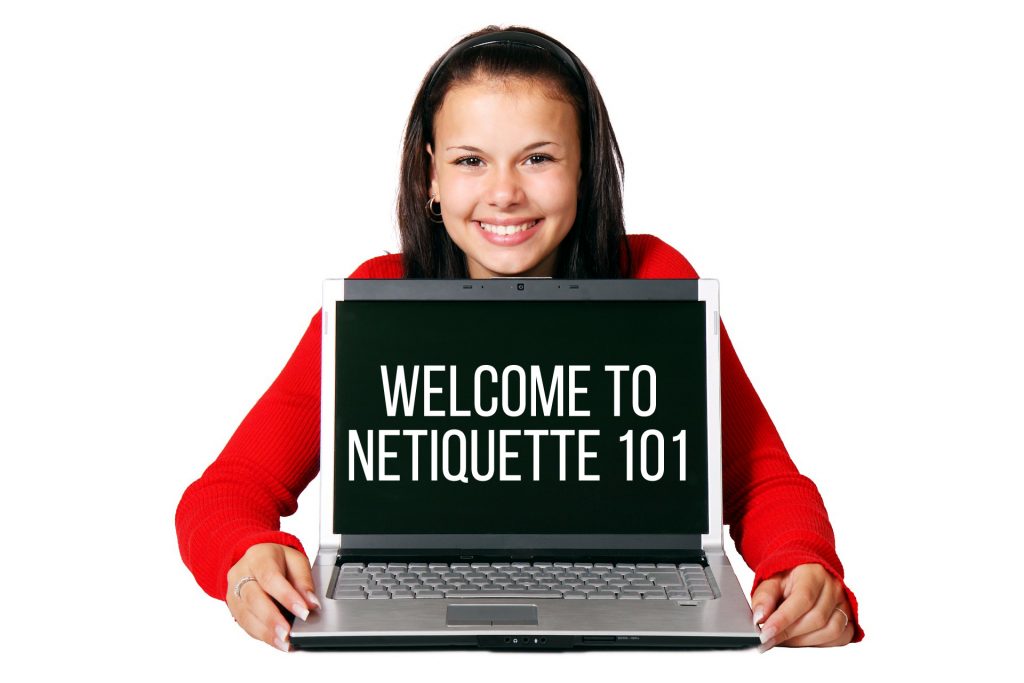Everyone needs to understand the basic rules of online communication for professionals
Even if you don’t engage online for work, anything you say or do in the court of online media can be held against you. If you want fair treatment from others and to build your personal brand, you need to understand netiquette.
Communication
Online, communication is currency in many ways. The way you write, post, and express yourself can either give you leverage or take it away. Remember these communication rules:
- Never send a generic message for a social media request or an email. Readers can spot “template” communication a mile away, and it diminishes your credibility as a professional.
- Don’t get too personal. Many people use the internet as their own personal soapbox. Unless your political and religious viewpoints and your snarky attitude are fundamentally part of your brand, don’t post them. Keep your personal life and opinions offline.
- Double check for clarity and tone. Online, we can’t place the same inflections we do in verbal communication. Always read over your words for grammar, spelling, understandability, and tone.
- Respond. Any forum that encourages back and forth communication deserves your regular attention. If someone comments on your blog, a social media post, or an email, take the time to send some form of communication back—even if it’s just an acknowledgement.
- Avoid engaging in public arguments. If you disagree with someone, take the conversation to a more private setting. Some people enjoy arguing online, but they’ll only make you look bad as a professional. Respect what people have to say in open forums—even if you don’t agree with it.
Posting and Sharing Content
If you post online content, use these guidelines:
 Cater your content to the space. The way we communicate on Twitter isn’t the same way we communicate in emails. Make sure your content matches the vibe of the domain. Follow all the rules of third party sites.
Cater your content to the space. The way we communicate on Twitter isn’t the same way we communicate in emails. Make sure your content matches the vibe of the domain. Follow all the rules of third party sites.
- Give credit where credit is due. If you quote someone, or repost their work, make sure you have the right to do so. Doing so is a common courtesy, but it will also protect you from copyright infringement. Not all content online is free to use as you please.
- Protect your work. If you post an original piece, take steps to reduce the risk of plagiarism. All original content is protected under copyright law, even if the content doesn’t have the © symbol. To reduce the risks, register your website with the DMCA and post a copyright notice on your pages.
- Tag others carefully. Social media gives users the power to tag others in pictures, videos, and posts. The content you tag will make a statement about the person you tag. To stay on the safe side, always ask someone before you upload or post a picture of him or her online.
The internet enhances communication in many ways, but it can also backfire on people. To protect your personal brand and your professional life, consider how a boss, colleague, or client might perceive the material.
Additional resources:
- Core Rules of Netiquette: Introduction
https://learning.colostate.edu/guides/guide.cfm?guideid=4 - Netiquette: Rules of Behavior on the Internet
https://www.education.com/reference/article/netiquette-rules-behavior-internet/ - The Top 10 Rules of Netiquette for Social Media
https://socialmediamore.com/the-top-10-rules-of-netiquette-for-social-media - The 5 Rules of Blog Etiquette
https://www.ereleases.com/prfuel/5-rules-blog-etiquette/

